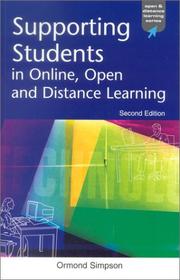| Listing 1 - 10 of 779 | << page >> |
Sort by
|
Book
Year: 2020 Publisher: Paris, France : Dunod,
Abstract | Keywords | Export | Availability | Bookmark
 Loading...
Loading...Choose an application
- Reference Manager
- EndNote
- RefWorks (Direct export to RefWorks)
L'Intelligence collective est une manière innovante de travailler en équipe. C'est la clé pour des sessions de travail plus efficaces, plus participatives, plus créatives. Bien plus qu'un outil, l'intelligence collective est un savoir-faire et un savoir-être. Faites de chaque réunion, chaque projet, une occasion de la déployer ! Ce guide pratique présente les objectifs et la démarche pour agir ensemble, et donne des conseils, des repères et des exercices pour vos accompagner dans votre première expèrience d'intelligence collective. Alors, lancez-vous ! Julia Kalfon, Delphine Batton, Sylvie Courcelle Labroussen Juliette Hamelin, Sonia Kruskovic, Géraldine Rimbault, Victorira Willis Sept expertes, facilitatrices aux profils divers, ont écrit ce livre en intelligence collective et vous livrent l'essence de ce que vous devez savoir pour agir et innover ensemble.
Book
Year: 2018 Publisher: New York, N.Y. : ACM,
Abstract | Keywords | Export | Availability | Bookmark
 Loading...
Loading...Choose an application
- Reference Manager
- EndNote
- RefWorks (Direct export to RefWorks)
Periodical
Year: 2018 Publisher: Washington, DC : Policy Studies Organization,
Abstract | Keywords | Export | Availability | Bookmark
 Loading...
Loading...Choose an application
- Reference Manager
- EndNote
- RefWorks (Direct export to RefWorks)
Book
Year: 2021 Publisher: New York, New York : Association for Computing Machinery,
Abstract | Keywords | Export | Availability | Bookmark
 Loading...
Loading...Choose an application
- Reference Manager
- EndNote
- RefWorks (Direct export to RefWorks)
Today, digital platforms are increasingly mediating our day-to-day work and crowdsourced forms of labour are progressively gaining importance (e.g. Amazon Mechanical Turk, Universal Human Relevance System, TaskRabbit). In many popular cases of crowdsourcing, a volatile, diverse, and globally distributed crowd of workers compete among themselves to find their next paid task. The logic behind the allocation of these tasks typically operates on a "First-Come, First-Served" basis. This logic generates a competitive dynamic in which workers are constantly forced to check for new tasks. This article draws on findings from ongoing collaborative research in which we co-design, with crowdsourcing workers, three alternative models of task allocation beyond "First-Come, FirstServed", namely (1) round-robin, (2) reputation-based, and (3) contentbased. We argue that these models could create fairer and more collaborative forms of crowd labour. We draw on Amara On Demand, a remuneration-based crowdsourcing platform for video subtitling and translation, as the case study for this research. Using a multi-modal qualitative approach that combines data from 10 months of participant observation, 25 semi-structured interviews, two focus groups, and documentary analysis, we observed and co-designed alternative forms of task allocation in Amara on Demand. The identified models help envision alternatives towards more worker-centric crowdsourcing platforms, understanding that platforms depend on their workers, and thus ultimately they should hold power within them.
Book
Year: 1997 Publisher: Abingdon Carfax
Abstract | Keywords | Export | Availability | Bookmark
 Loading...
Loading...Choose an application
- Reference Manager
- EndNote
- RefWorks (Direct export to RefWorks)
Periodical
Year: 2018 Publisher: Washington, DC : Policy Studies Organization,
Abstract | Keywords | Export | Availability | Bookmark
 Loading...
Loading...Choose an application
- Reference Manager
- EndNote
- RefWorks (Direct export to RefWorks)
Book
ISBN: 9781433128578 9781433128585 Year: 2016 Publisher: New York : Peter Lang,
Abstract | Keywords | Export | Availability | Bookmark
 Loading...
Loading...Choose an application
- Reference Manager
- EndNote
- RefWorks (Direct export to RefWorks)
In this book, internationally recognized scholars provide in-depth insight into the emerging field of open education. The Philosophy of Open Learning provides an overview of the current debates and introduces the reader to the overall discourse on open education. The broad range of topics, including MOOCs (Massive Open Online Courses) and OERs (Open Educational Resources) is aimed at demonstrating that open education has emerged as a new principle for organizing higher education. Based on this idea, the book covers various issues that are backed up by thorough philosophical reflections that provide orientation for the heated debates. Open education is discussed in its various imbrications to other open movements, such as open access, and its relevance for education over the last fifteen years

ISBN: 0749437405 Year: 2002 Publisher: London Kogan Page
Abstract | Keywords | Export | Availability | Bookmark
 Loading...
Loading...Choose an application
- Reference Manager
- EndNote
- RefWorks (Direct export to RefWorks)
Periodical
Year: 1997 Publisher: Budapest : EDEN Secretariat
Abstract | Keywords | Export | Availability | Bookmark
 Loading...
Loading...Choose an application
- Reference Manager
- EndNote
- RefWorks (Direct export to RefWorks)
Book
ISBN: 8578793501 8578793498 Year: 2019 Publisher: SciELO Books - EDUEPB
Abstract | Keywords | Export | Availability | Bookmark
 Loading...
Loading...Choose an application
- Reference Manager
- EndNote
- RefWorks (Direct export to RefWorks)
O livro Industrialização do ensino e política de educação a distância coloca-se como um trabalho sério e rigoroso ao aceitar o desafio de afirmar que “o discurso da industrialização do ensino governa a prática discursiva que norteia a política nacional de educação a distância”. O autor recorre a três ideologias que deram origem a diferentes teorias, concepções, abordagens e modelos de educação a distância: a “teoria da interdependência e autonomia”, a “teoria da comunicação e interação” e a “teoria da industrialização do ensino”. A partir desta última, faz um exame da política nacional de EAD, para mostrar que a “abordagem parte da premissa de que, enquanto a educação face a face compreende formas pré-industriais, a educação a distância pressupõe essencialmente condições industriais de ensino”, as quais teriam “como base o princípio da racionalização” que afeta o espírito, a letra e a política do processo de ensino-aprendizagem.
| Listing 1 - 10 of 779 | << page >> |
Sort by
|

 Search
Search Feedback
Feedback About UniCat
About UniCat  Help
Help News
News